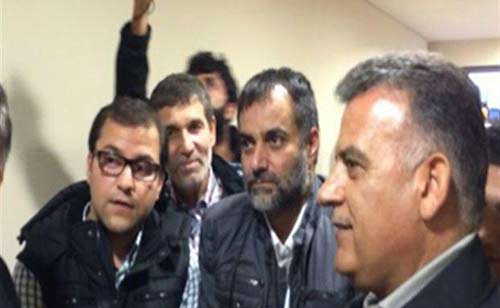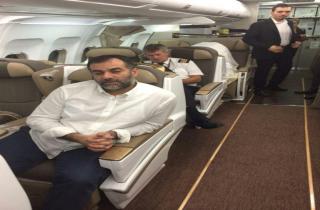The 17-month abduction period which the Lebanese pilgrims have suffered from in the detention camps of the Syrian militant groups was accompanied by hard efforts exerted by different parties to set them free.
 The 17-month abduction period which the Lebanese pilgrims have suffered from in the detention camps of the Syrian militant groups was accompanied by hard efforts exerted by their kin, the Lebanese government and regional states to set them free.
The 17-month abduction period which the Lebanese pilgrims have suffered from in the detention camps of the Syrian militant groups was accompanied by hard efforts exerted by their kin, the Lebanese government and regional states to set them free.
The Lebanese government has worked via contacting the influential regional states to put an end for the crisis.
The Turkish government that has great influence on several Syrian militant groups did not play a pivotal role in ending the crisis despite its recurrent assurances it had always presented to the Lebanese officials.
Recently, two factors have pushed the Turkish government to intensify its movement towards the release of the abductees:
- Abducting the two Turkish pilots in Beirut Last August.
- The field progress of the Islamic State in Iraq and the Levant (ISIL) towards the Syrian-Turkish borders what threatens the pro-Turkish militant group that abducted the Lebanese pilgrims.
Qatar also has a great influence on the Syrian militant groups due to the financial and military support it grants to these militias.
This influence did not drive the Gulf country to work seriously on retaining the freedom of the Lebanese abductees, yet the political competition with the Saudi role in the region pushed Qatar towards terminating the cause, in an attempt to strengthen its regional position.
For its part, the Syrian leadership contributed to the achievement by releasing a number of female prisoners in response to the kidnappers' demands.
Surprisingly, the Palestinian authority has played a central role in contriving the operation.
The Palestinian Foreign Ministry issued a statement in which it announced that President Mahmoud Abbas has launched a mediation to carry out a swap deal in order to end this human woe.